Baseball History Comes Alive Now Ranked #2 by Feedspot Among All Internet Baseball History Websites and Blogs!
Guest Submissions from Our Readers Always Welcome!
Scroll Down to Read Today’s Essay
Subscribe to Baseball History Comes Alive for automatic updates. As a Free Bonus, you’ll get instant access to my Special Report: Gary’s Handy Dandy World Series Reference Guide!
1975 World Series Photo Gallery
Click on any image below to see photos in full size and to start Photo Gallery:
Today we welcome back Michael Keedy with Catch Number Five in his countdown of the TopTen greatest World Series catches. Written in Michael’s engaging, distinctive style—loaded with plenty of his signature tongue-in-cheek humor—he recounts his personal remembrances of the 1975 World Series and the great catch by Dwight Evans in Game Six.
The 1975 World Series happened to coincide with Michael’s preparation for the Montana bar exam, and so he peppers the essay with interesting tidbits about all he went through at that critical time. It was hard for him to concentrate on both events simultaneously, so something had to give…and it wasn’t the World Series! Thankfully Michael went on to pass the bar in spite of the rude intrusion of the World Series into the most important event of his life. It’s a great essay, and I think you’ll enjoy it. Be sure to check out the video of Dwight Evans’s sensational catch below. -GL
Michael Keedy’s “TopTen Greatest World Series Catches”
Number Five
DWIGHT EVANS AND THE 1975 WORLD SERIES:
PEAKING TOO SOON!
The very mention of “Game Six” is almost certain to evoke sharp visions of Carlton Fisk’s walk-off homer in the 1975 World Series. As thrilling as it was for millions of viewers across the country and all of New England, Fisk’s high drive off the foul pole in the bottom of the twelfth could not quite break “the Curse of the Bambino.” Worse yet, that haunting hex hanging over Red Sox Nation would remain monotonously intact for the rest of the 20th Century, a mind-numbing total of four-score and six exasperating seasons.
It wasn’t always like that for the Sox. They won the very first World Series (1903), then rolled to world championships in 1912, ’15, ’16, and ’18. The Mighty Babe, a fireballing lefthander who had yet to distinguish himself as the greatest slugger this side of Alley Oop, won 18 games for Boston in ’15, 23 in ’16, 24 in ’17, and another 13 in 1918, when he began splitting his time between the mound and the outfield.
The Red Sox Descend Into Decades of Mediocrity!
But Harry Frazee, who owned the team, essentially gifted Ruth to New York in late 1919. Just like that, the Sox, who won five of the first fifteen World Series on record, could forget about collecting any more championship rings for the rest of the 1900s.
Though decided underdogs against Cincinnati, Boston’s ’75 edition appeared to have a fighting chance. They had Fred Lynn, the league’s rookie-of-the-year and MVP in an unprecedented two-fer, in center; an aging yet dangerous Carl Yastrzemski in left, and an eventual eight-time Gold Glove winner in right, about whom more in a minute. Carlton Fisk was their all-star catcher. These Sox had won 95 games, the most since 1949. (Don’t ask what happened back then.)
The Big Red Machine Was Loaded!
Meanwhile, the Big Red Machine looked lethal, with Bench, Rose, Morgan, Perez, Foster, and Griffey to contend with. Their win/loss record of 108-and-54 was the best in the majors. They seemed virtually invincible; the fearsome nemesis of John Henry himself. Against the odds, I would definitely be pulling for Boston, all the way from northwest Montana.
The Montana Bar Exam Inconveniently Intrudes!
But the ’75 series came at an inconvenient time for me. When Game Six at Fenway Park, a must-win for the home team, was pushed back again and again on account of a wicked nor’easter, it would have to start on Tuesday rather than the prior Saturday, less than a week before a scheduled, three-day evaluation of stamina, brains, and concentration otherwise known as the Montana Bar Exam.
Having grasped the perils of peaking too early for a critical moment such as that, “Yours Truly” cagily resolved to delay a diet of late-nighters until 10/21: exactly six days before sanctioned human suffering was set to commence down in Helena. Game Six, now a night game to appease scores of sponsors, would capture the nation’s consciousness on 10/21. Perfect.
Your faithful thinker hunkered down in the kitchen with a library of antidotes for insomnia, including mining, oil and gas, and somebody’s alleged water rights, to name a tantalizing but representative few. I had to wonder whether the TV in a distant bedroom, the sound of the game barely audible, might compete for the attention of one whose professional future dangled in the balance. Lynn’s three-run shot in the first inning was the encouragement I needed to turn the volume even lower. Now, it seemed, a guy could get serious, put the game on a tall shelf, and focus on our incredible and intriguing justice system.
With the rules of evidence eventually laid to rest, the Reds were by now a measly four outs short of putting these wannabes from the Junior Circuit out of their misery. Cincinnati held their hosts in a 6-to-3 vise, two gone in the eighth, and two strikes on a pathetically outmatched pinch-hitter. It was hard to believe he was The Machine’s first draft pick, back in ’65, a notch ahead of the perennial all-star catcher now squatting behind him, calling for the inevitable “out” pitch from his team’s star closer and the league’s leader in saves.
First things First: Bar Preparation Put On Back Burner!
But wait! Put down “The Rule Against Perpetuities,” young man: The commotion from the Commonwealth sounding in the other room told the story, punctuated by Joe Garagiola’s unforgettable cry: “We’re tied up!” It was now “off to the bedroom,” with none of the meaning or anticipation ordinarily associated with that inviting phrase, and no residual concerns about the half-dozen or so grounds for filing an interlocutory appeal in a criminal case.
What were the odds, I had to wonder, that Bernie Carbo, down to his last strike, a blindfold and cigarette his only remaining comforts, would drive one deep over the wall in center, with two men ahead of him and the blessed ballgame on the line? Who cared? He had done it! and all the beckoning books calling my name from the kitchen linoleum were now shut tight.
Dwight Evans Takes Center Stage…
With no more scoring through the tenth inning, the eleventh opened with Rose taking a pitch on the arm, and eagerly taking his base. Griffey bunted into a forceout, with Fisk pouncing on the ball and making a high-octane peg to second, just ahead of Charlie Hustle. Then it happened: The catch of the night, the series, and one of the best of all time!
Dick Drago was now throwing, and a Hall-of-Famer in waiting came to the plate. He was the season’s MVP, an honor he would win again the following year. Flapping his back elbow in the signature fashion taught him by old Nellie Fox when both men played for Houston, Joe Morgan smoked a solid, rising shot to right. It looked like extra bases for sure, and quite likely a two-run stake-in-the-heart. Thinking that exactly, Griffey was already steaming toward second, his mind on the plate.
Dwight Evans knew from experience this ball would curl away from him toward the right-field line, and that it would very possibly sail into the low stands for a home run. He raced in that direction almost by rote and was shocked to notice he had overrun a ball that refused to bend as expected. He actually lost sight of the thing. Then, at the last instant, as Evans headed into the wall himself, he just did manage to spear it behind his head with the contorted move of a nimble yogi. Out!
This tremendous catch did not seem to faze Mr. Griffey, who had already boarded the cross-town bus to Framingham. Collecting himself after an ungainly but triumphant grab, Evans hurled his catch-of-the-decade toward the home dugout. Yaz, who had taken over at first for Cecil Cooper, hauled in this prize a good twenty feet from the bag, then tossed it to first where Rick Burleson, Boston’s shortstop [!], was able to double off Griffey with time enough to recite The Lord’s Prayer beforehand if required. Of course, this whole business was promptly recognized as the customary 9-3-6 double play. The eastern seaboard went bananas, and even a night-oil burner two thousand miles off could tell the momentum had suddenly shifted to the good guys.
...And Then the Famous Fisk At-Bat!
Everybody with a pulse knows what happened in the bottom of the twelfth. Carlton Fisk’s iconic drive to left, aided by the fates and his own considerable body English, finished off The Machine with a flourish, sending the whole of New England into a collective and lasting frenzy. Basking in the afterglow a million miles away, a museum-quality copy of The Commercial Code at my dancing feet, I couldn’t quite shake the nagging sensation that Sox Nation was peaking too soon.
Michael H. Keedy
Subscribe to our website, “Baseball History Comes Alive!” with over 1200 fully categorized baseball essays and photo galleries, now closing in on the one million hits mark with 894K hits and over 700 subscribers: www.baseballhistorycomesalive.com
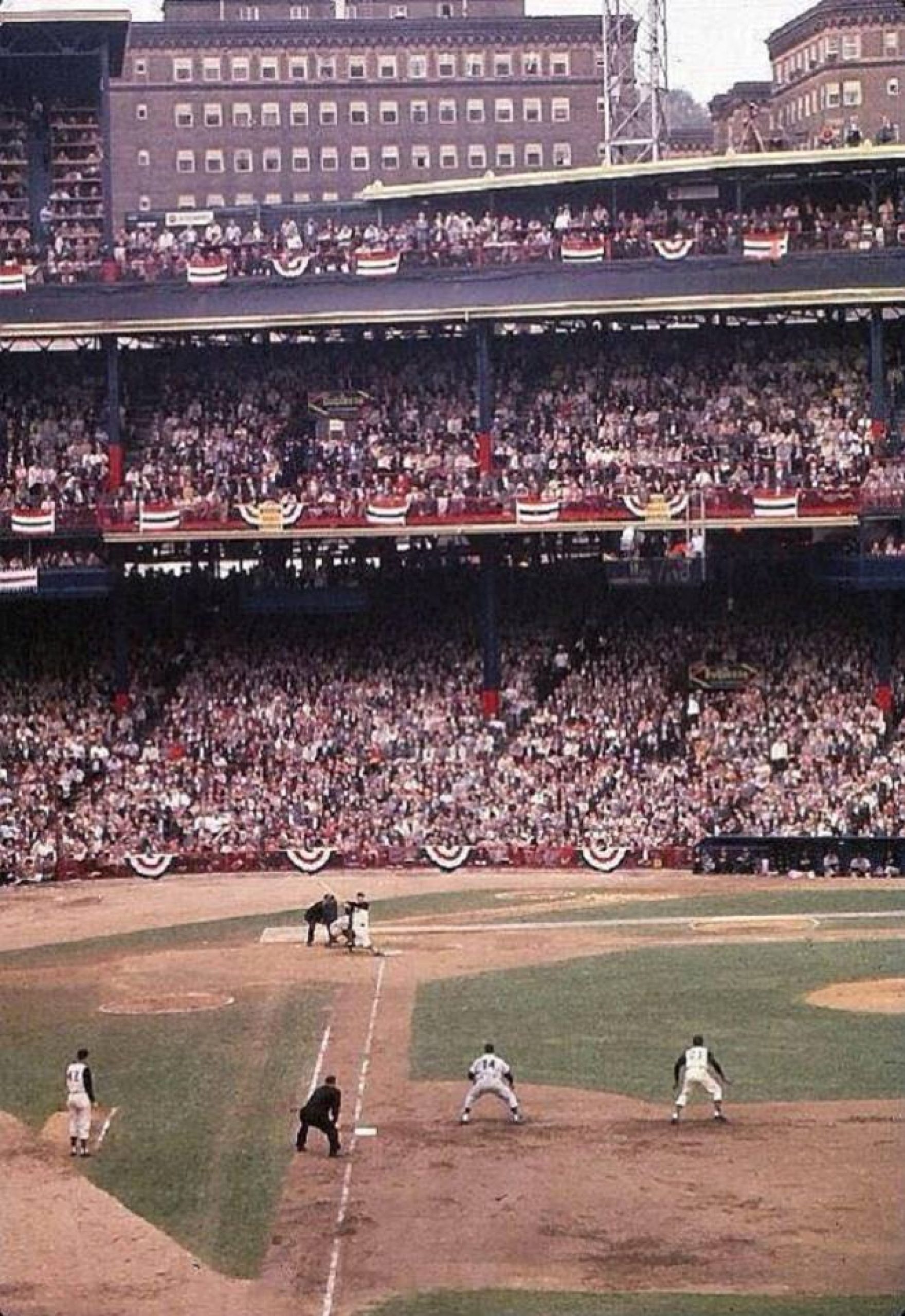
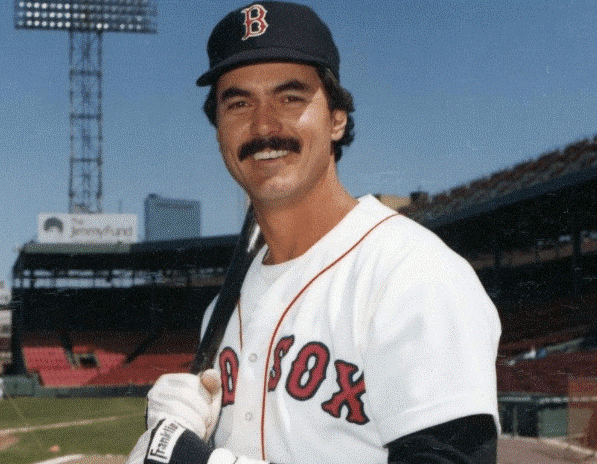
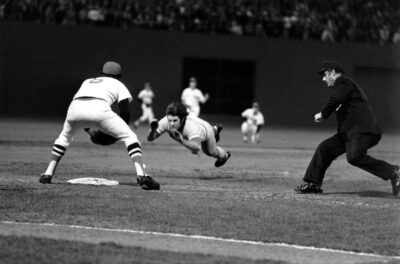
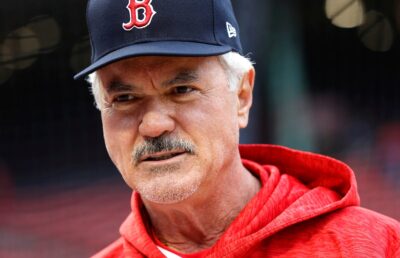
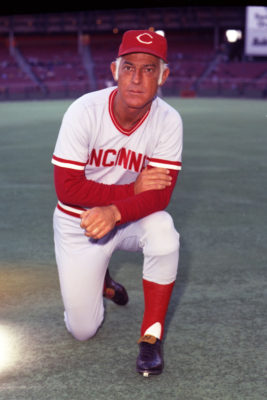
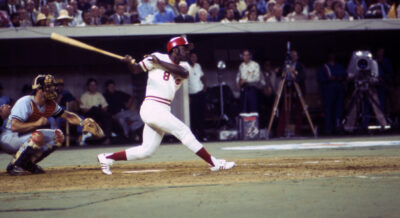
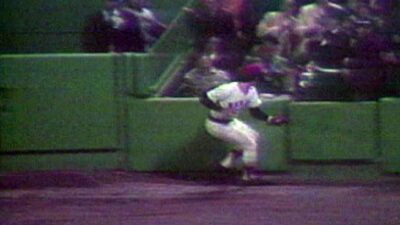
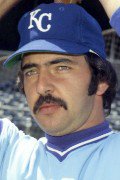
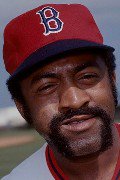
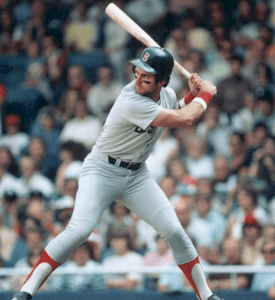
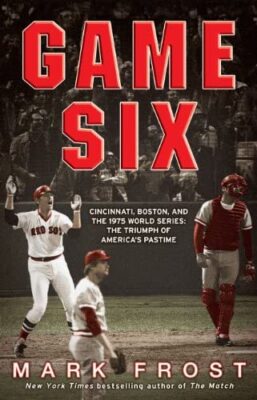
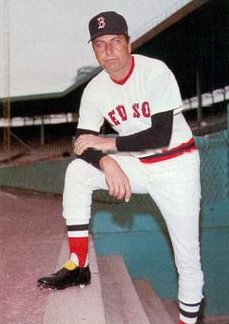
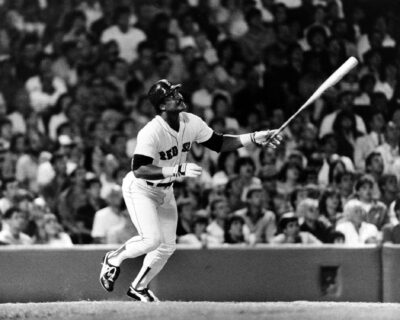
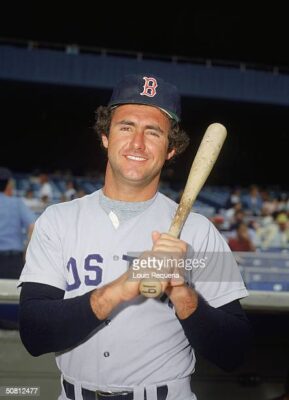
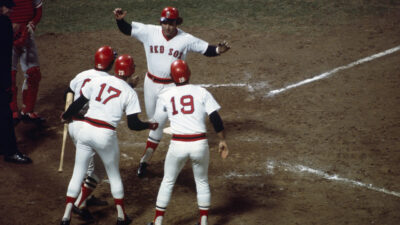
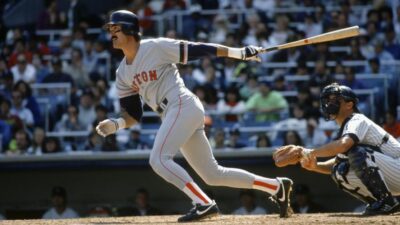
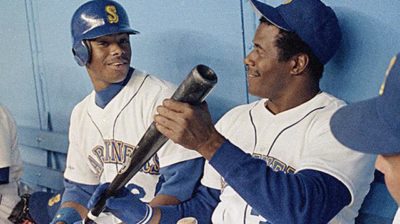
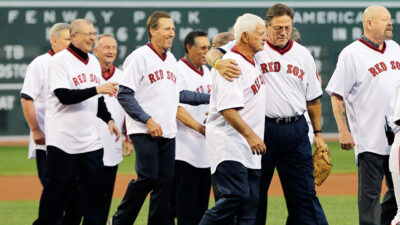
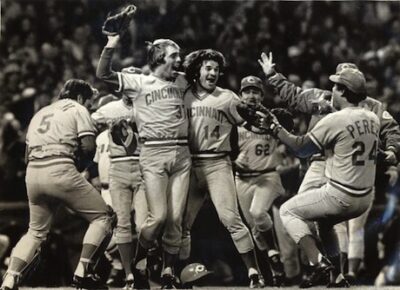
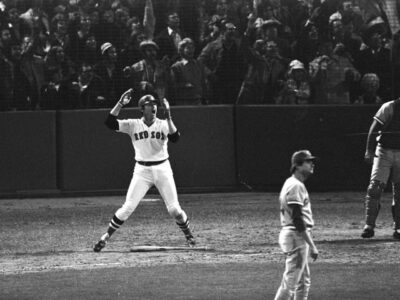
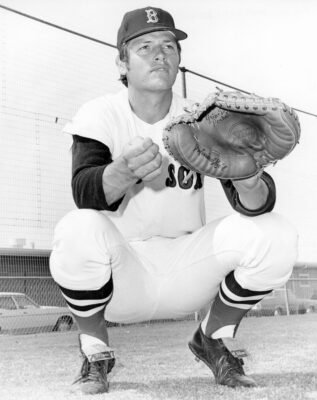
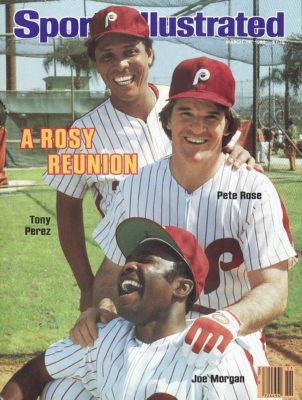
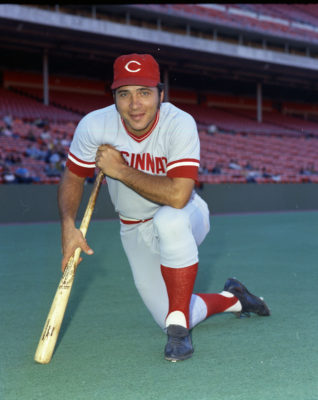
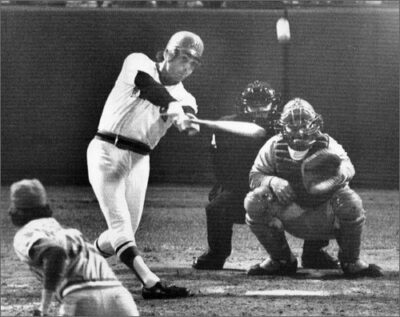
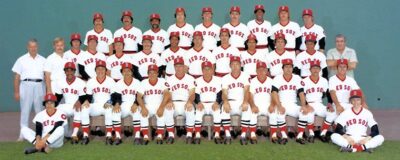
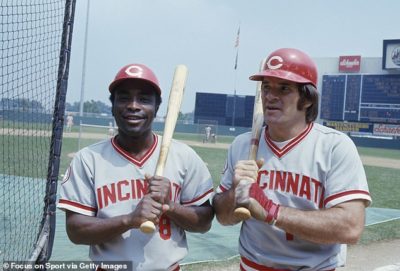
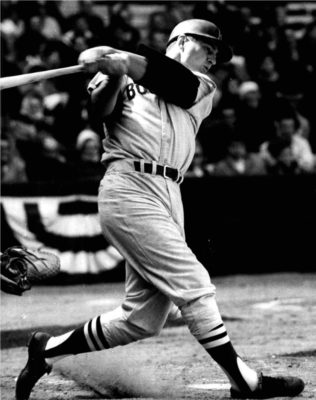
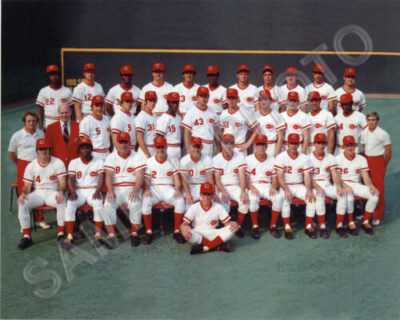
Unlike Mr. Keedy that fateful night, I had already passed the IL Bar Exam the year before. I was watching that game in my apartment on Morse Ave., as my roommate, Bob Cunniff, was working at Walgreen’s that night. I jumped up off the couch when Fisk hit the body-English aided tater. I knew even then what an historic homer that one would be. I couldn’t help but root for the BoSox in game 7, but, alas, ‘twas not meant to be!
Budman
Great memories, Mike, thanks!
I was watching Game 7 with my dad and two of my brothers, Bill and Dave. That whole World Series was thrilling, going back and forth again snd again. When Fisk hit the homer, it was one of the most memorable moments in my more than 65 years of being a baseball fan. Joe Cunniff
Thanks Joe…great memories!
Just back from Mystic Island, NJ, read the essay late last night.
Frankly, I don’t get why you lawyer types make such a big deal out of passing the bar. In the last month, my wife and I passed five bars in Ft. Lauderdale, FL and three in Long Beach Island, New Jersey–without studying. In Fact, we had a lot more fun in the bars we didn’t pass! We also approached five benches on the boardwalk in Va. Beach. What’s the big deal?
All seriousness aside, that’s quite an essay by Professor Keedy. I was vaguely aware of a catch by Evans but didn’t remember any of the details. Marvelous description of the by emeritus Michael. Great point about Morgan’s drive not hooking as expected and the fluid adjustment made by Dwight Evans to make the play and somehow avoid that nasty little fence at Fenway. A person could do a lot of damage to a knee in that situation.
Thanks MK, looking forward to Catch # 4!
Best, William S.
Ah, Bill…I don’t think that’s what MK meant by “passing the bar!” Haha!
You guys are hilarious! It’s nearly always a greater joy for me to read clever comments like these than to review my own stuff. Thank you so much.
/s/ Alfred, Lord Tennyson
(Crossing The — )
You’re welcome, Michael, Lord Keedy!